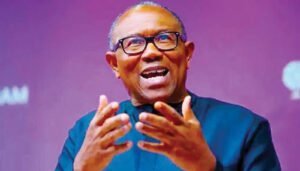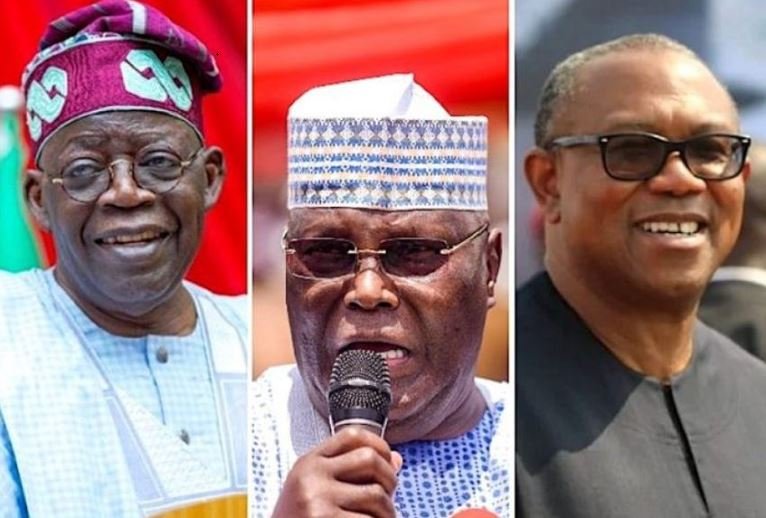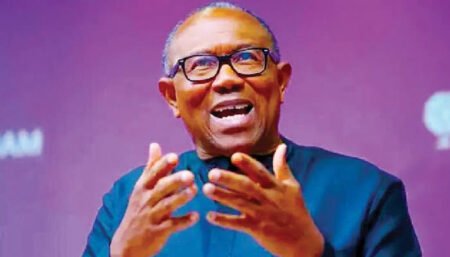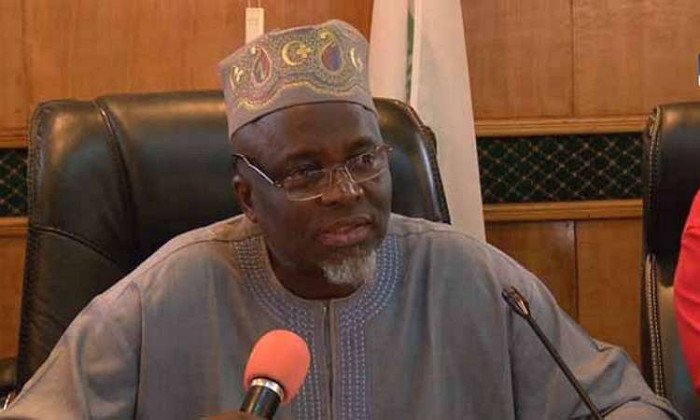By Femi Onakanren
On February 25, 2023, Nigerians trooped (out) to vote their presidential candidate of choice from a list of 18 aspirants. 4 aspirants were identified as leading candidates.
Interestingly, 3 of the 4 (major) aspirants are Muslims, with the last being a Christian. 2 of the 4 are from the North (NW and NE), whilst the other 2 belong to the SW and the SE. It appeared that lines were being drawn along the country’s historical fault-lines.
The campaign leading to the elections also exposed some latent but burning national issues. All the national devils of ethnicity, youth anger and disillusion with the system, and religious intolerance converged for (an) orgy of discord.
The situation was further compounded and exacerbated with economic challenges of rising inflation, fuel scarcity, FX rates concerns, and then, on the eve of the elections proper, the poor implementation of the Naira redesign policy; the cauldron was steaming with invectives, abuses, diatribes, and extremism.
As elections commenced on the morning of February 25, 2023, there was palpable tension. Citizens had endured some of these hardships in order to have elections conducted and concluded so they can move on with their respective lives afterward.
This election has proven itself monumental for a couple of reasons:
– All of the nation’s elections have always had ethnoreligious undertones. This election is by far the worst with very scary consequences and fall-out. The ethnic lines drawn have ensured that indigenes-preferential treatment and hostility to other alien ethnicities will be on the rise. Expect restrictions and limitations on the ‘rights’ and ‘access’ of non-indigenes across several states and regions. In extreme cases, there may be revocation of earlier given rights and privileges. The lop-sided results in some a particular region is cause for concern. We are yet to embrace our diversity in unity in the most critical of social issues, governance. The fact that ethnic wins, that offers no hope of improvement to our lives, are valued above critical capacity to deliver is of grave concern. The first job of the new administration, whichever way the card falls, will be to facilitate national nationhood awareness, reorientation and acceptance.
– The PDP will have learned a critical lesson regarding key-man risk with the questioning of the loyalty of some of its strongholds who chose to vote across ethnic lines. This means that going forward, there will be less trust for the people and politicians of that region. It should also send a warning of deeper inclusion of the region in the political structure and decisions of the party. A monumental change within the party is afoot.
– Religion as a political tool was not as impactful during this election cycle. Whilst a lot of noise was made regarding Muslim-Muslim ticket, it proved inferior to ethnic bias and political alliances. This must be considered a big win for the country. Some may say that Christian areas voted Christians and vice versa. There wasn’t as widespread an influence compared with ethnic bias and political alliances.
– State politics are going to be extremely insular and ethnic especially with the scares the presidential results are throwing up. A lot of goodwill has been lost, and national integration damaged. Thusly, the upcoming state elections are likely to be very violent with low electorate turnout as stakeholders battle to keep their hold on their constituencies. The image of being Nigerian first across all states of the federation has been severely battered.
– Once again, the trend of disdain for the National Assembly stands out. The federal legislative seats were up for grabs, but the focus was on the presidency. This shows the polity is not politically savvy, nor does it understand where its real political power and influence lay. Some parties, though desperate for the federal executive position, did not field candidates for the NASS. Recall that both the presidential and NASS elections take place on the same day. It was shocking that some unknown aspirants were elected without being known or doing any reasonable campaigns. Our journey to political intelligence as citizens still has some ways to go.
– There are no righteous parties. For every allegation and occurrence of skirmishes and suppression in Lagos, there are similarities all over the country. The culture of violence was reignited and seems a regular staple now. If might continues to be considered right, anarchy and chaos will become inevitable. Again, if each of the parties are grilled, they would be revealed to be equally complicit.
– Politicians have bred a deep distrust of the system such that once things do not go a particular way, dissent and chaos become the default position. This is now taken as fool-proof irrespective of the circumstances or context. This self-serving position continues to hurt the entire nation and coming generations. This is being played out by the mischievous misunderstanding of the use of INEC’s IREV and BVAS as against the provisions of the Electoral Act of 2022 is a telling disservice to the sociopolitical progress of the nation. They are feeding the ignorance and naivete of the electorate for selfish ends and ambitions. This is a dangerous Zero-sum game that ultimately ensures everyone loses.
– The supposed cabal behind the entire brouhaha leading to election day is not as powerful as previously advertised. This is another piece of misinformation that glorifies phantom groups to elicit political sympathy and apathy. Also, PMB has demonstrated that, like him or hate him, right or wrong, he is his own man. Whatever reasons may have advised some decisions leading to the elections, the president makes his own decisions. Make of that what you will
– Leading from the above, some of the results were quite curious. The president lost in Katsina, Tinubu lost in Lagos, incumbent Govs of Kaduna, Kano, Delta lost in their states. The hope is that we as a people can build on this electorate paradigm shift.
– The value of political structure has been emphasized in this election. A key tenet of our electoral process is the rule of 25% votes in a minimum of 24 States of the federation. This means that the only true contenders are parties who have the requisite spread to deliver same. Thus, the key watch point is: 25-in-24 is the admittance fee to the big boys’ table. Parties who are able to achieve this will then be able to focus on securing majority numbers at the end of the game. It is not about noise or fanfare. It has nothing to do with (emotions). It is delusional to imagine you can win an election in a multicultural and multidimensional (country) like Nigeria and think (weaponizing) ethno-religious hate, bias, and bigotry, ignorance and anarchy will help to win. Political tutorials are being dispensed.
– The North has proven itself a reliable political ally as against all previous regional narratives. This distinction is important going forward as usually, other regions ‘join’ the North’s mandate. This is a refreshing development and will have deeper consequences in dimensioning Nigeria’s political landscape going forward. The North has always been the belle of the ball in the country’s elections. This time out, it had a coming out party.
– INEC and the FG must be commended for BVAS and the Electoral Act. Although poorly appreciated and deeply maligned, these masterstrokes have redefined the game, and the country can only improve going forward. On this note, everyone needs to work together to silence the voices of dissent that will try to undermine the mileage these twin developments have given us. Yes, there were challenges but the gains far outweigh issues. Also, it is imperative that people read up on the electoral act and stop relying on social media and partisan politics narratives.
– The vote-buying narratives arising from Naira redesign have proven moot. Politicians still tried to buy voters and deployed political thugs. Thus, Nigerians were subjected to undue hardship over the last couple of weeks unnecessarily. It is hoped that the FG, SC, and CBN can come to a timely resolution that will bring succor to the people.
– Freedom is a beautiful thing for a matured mind, but a prison racked with landmines for a poorly trained mind. The Nigerian social media space needs sanitization. The ease with which falsehoods, hate speech, negative narratives, etc. get around and create deep tension in the polity should be of concern. This space is in dire need of regulation and control if we do not want to inflame the country. This election has shown how powerful communication and information are.
– Stemming from the above is also the sad case of the country’s education system. Basic comprehension is a big problem. Laziness to fact-check is another. Entertainment by gossip and banter (vibes and Insha Allah) are the order of the day. In all the above noise, there isn’t an iota contributing to increased national productivity. There is a need to revamp our entire academic curriculum and education structure. This must be redesigned along lines that are compatible with our sociocultural dispositions. If unaddressed, we risk having the highest number of poorly thinking educated people in the world. That would be a nation of minions.
– There are dejavu feelings reminiscent of some previous, iconic national events that led to widespread chaos. That disturbing nostalgia seems to hang in the air. Security operatives and law enforcement agencies should be on guard at high alert to forestall and break up all such. This has also exposed the fact we need to increase our security personnel-base. A small outbreak of chaos can easily snowball into a full-scale storm
– There are indications that this may be the election with the lowest turnout despite it also being the most discussed and analyzed election ever. Voter suppression, fear of violence, has surpassed voter apathy arising from a distrust of the system. One step forward, two steps backward…
– Youth contribution and involvement is another important development from this election cycle. Whatever their reasons may be (disaffection and distrust of the establishment, etc.), it is important that the value of civic obligations and involvement is impressed on the youth very early. An abdication of such responsibilities led to the current malaise. The youth should keep the tempo up!
Finally, as the results are being collated, what stands out the most is that a nation can only be built (with) bridges, alliances, and collaborations. There must be a concerted effort to see the country over and ahead of the candidate of choice.
There is a need for a lot of political education, national re-orientation, and collective integration in the Nigeria project. Whoever wins the presidential election is the president of the country, not a region or political party. He must act same and we must all join hands to support him.
Femi Onakanren is a business consultant, economist, and policy analyst. He writes from Lagos










